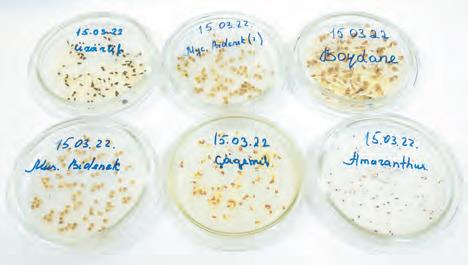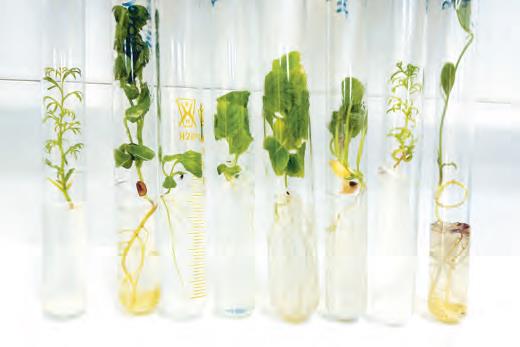Since 2021, the Institute of General and Applied Biology of the Oguz Khan University of Engineering and Technology of the Academy of Sciences of Turkmenistan has been conducting research on microcloning of plants, the Neutral Turkmenistan newspaper writes.
Microcloning, micropropagation or “in vitro” method is based on the use of a small fragment of plant tissue, cells of almost any plant organs: leaf and stem, cotyledons and embryo, bulb bottom, root segments and inflorescence rudiments – for breeding of viable sprouts that can continue to develop in a natural environment.
The method allows for reproduction of hard-to-germinate crops, as well as poorly renewable flora species in nature.
The head of the biotechnology laboratory of the Institute, Makhym Nepesova, told in an interview with the newspaper that freshly harvested seeds of medicinal plants are used to obtain seedlings from a test tube. For example, this is amaranth, harmala, licorice, blue fenugreek, paulownia, clary.
The experiments were repeated fivefold with statistical data processing.
The material was placed in disinfected Petri dishes – in a special gelatinous substance, which at the same time is a nutrient medium containing sucrose, micro and macroelements, vitamins.
After a day or two, the crops came to life, their germination reached 60-90 percent. The shoots were kept in a climate chamber – a special device called a “light thermostat”. The chamber maintains the humidity on a preset level and the temperature at +23- +26 0C during the day and at 160C – at night. The fluorescent lamps simulate sunlight.
After a month, the seedlings are transplanted into pots, but they continue to remain in the climate chamber. And only then the plantlets move to nurseries, and from there to the open soil.
It is noteworthy that the private sector is also involved in scientific developments in the field of green reproduction.
Thus, in the framework of cooperation with the Union of Industrialists and Entrepreneurs of Turkmenistan, lab experiments are being conducted on accelerated micropropagation of a woody plant – paulownia, whose foliage and flowers are used in pharmacology, cosmetology, animal husbandry, and wood – in cellulose production.
The micropropagation has many advantages over traditional methods of cultivation – the seedlings are healthy and have no any viruses, have a high reproduction coefficient, reduced time for breeding process, germination work in a test tube can be carried out at any time of the year, the planting material takes root well in the natural environment in the future.
The “in vitro” method can save especially valuable species of flora from extinction, including endangered ones. It is also possible to grow exotic plants and restore the gene pool of promising medicinal plants spread in isolated areas in the shortest possible time.///nCa, 21 August 2022

